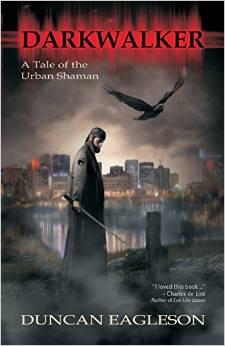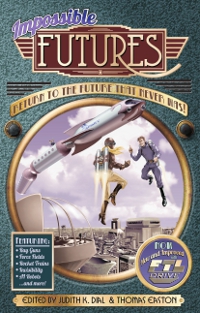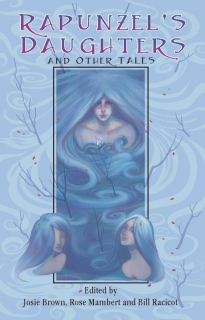I’m sometimes amazed, considering some of the work that’s out there, that some people – most notably traditional media artists, but others as well – continue to disparage art that’s produced digitally. While I wouldn’t hold myself up as the best example – I mean, I think I’m pretty good, but there are many out there who are far better than me – my work is created exclusively on computer these days. Granted, I have a background in traditional media, but some of those brilliant digital artists out there have never touched an actual paintbrush to real life canvas – or, to be more accurate, many of them had never handled traditional media until well after they mastered the digital. It’s worth noting that most of the best of them have, at some point, chosen to experiment with traditional forms just to expand their experience and skills.
Digital media offers opportunities that traditional media does not, and this is true, I think, in all the various art forms. My best friend and co-author Rev is also a musician, and though he still plays an actual guitar, he’s also recording using some of these digital techniques, doing stuff he could never, ever have done without a computer, at least not without spending outrageous amounts of money (which is true of many musicians). I know filmmakers who can produce professional looking results that would have cost millions, or needed a big Hollywood production company behind them, without the computer.
Yes, there’s a lot of crap out there, and the democratization provided by digital technology puts the ability to create and disseminate work in the hands of people who have no idea what they’re doing, filmmakers with zero sense of cinematography or story, artists without a clue about anatomy or composition, writers who publish through Amazon who don’t know their arse from a hole in the plot. But this technology also puts these possibilities in the hands of those who do know what they’re doing, and and provides far more options than they ever had before.
Sturgeon formulated his famous law (“90% of everything is crap”) in 1958. That it’s still true today should be no surprise. Computers and the internet aren’t responsible for this. All they’ve done is increase the total volume of both crap and valuable work, and made all of it more accessible.
What I’ve noticed is that every time there’s some technological innovation, there’s a flood of that crap that seems to overwhelm the good stuff, as both the clueless and the clueful glom onto it – but eventually it settles down. Because with notable exceptions, the shit tends to sink and the worthwhile stuff floats to the top. I see it happening right now in self publishing. Initially, you couldn’t find anything good for the ocean of badly written books with terrible covers. Today many of the self and indie published works are rivaling what the big publishers put out, in both the quality of the writing and that of the packaging. Sure, there are a few bad writers who’ve hit it big this way, but no more of them than the bad writers who are traditionally published.
If you’re passionate about your art (painting, writing, music, whatever it is), you’ll work your butt off to get better, to learn what you need to learn to improve and perfect your work. Not only does the digital world provide you with tools to do the work, it provides tools to get better at it. There are some great online courses available, some of them free, some moderately expensive, all certainly cheaper than (and many just as good as) brick and mortar schools that would put you in debt for life. I’ve yet to meet an art director who gave a shit where I went to school if they liked my portfolio. I don’t believe most editors care about your degree if they love your novel. I don’t know much about other equivalent fields, but I suspect that outside of areas that specifically require degree programs like medicine or law, the same principle applies.
Every day, I see artists working on computer produce incredible work, as good, or in some cases better than, the ones I know who work in traditional media. The technical skills may be superficially different, but the aesthetic skills remain the same. Bottom line for me: I don’t care what your medium is, it’s the result that counts.




 "Duncan Eagleson's Viking Snow White retelling, "Snovhit" [has] an authentically ancient feel."
"Duncan Eagleson's Viking Snow White retelling, "Snovhit" [has] an authentically ancient feel."